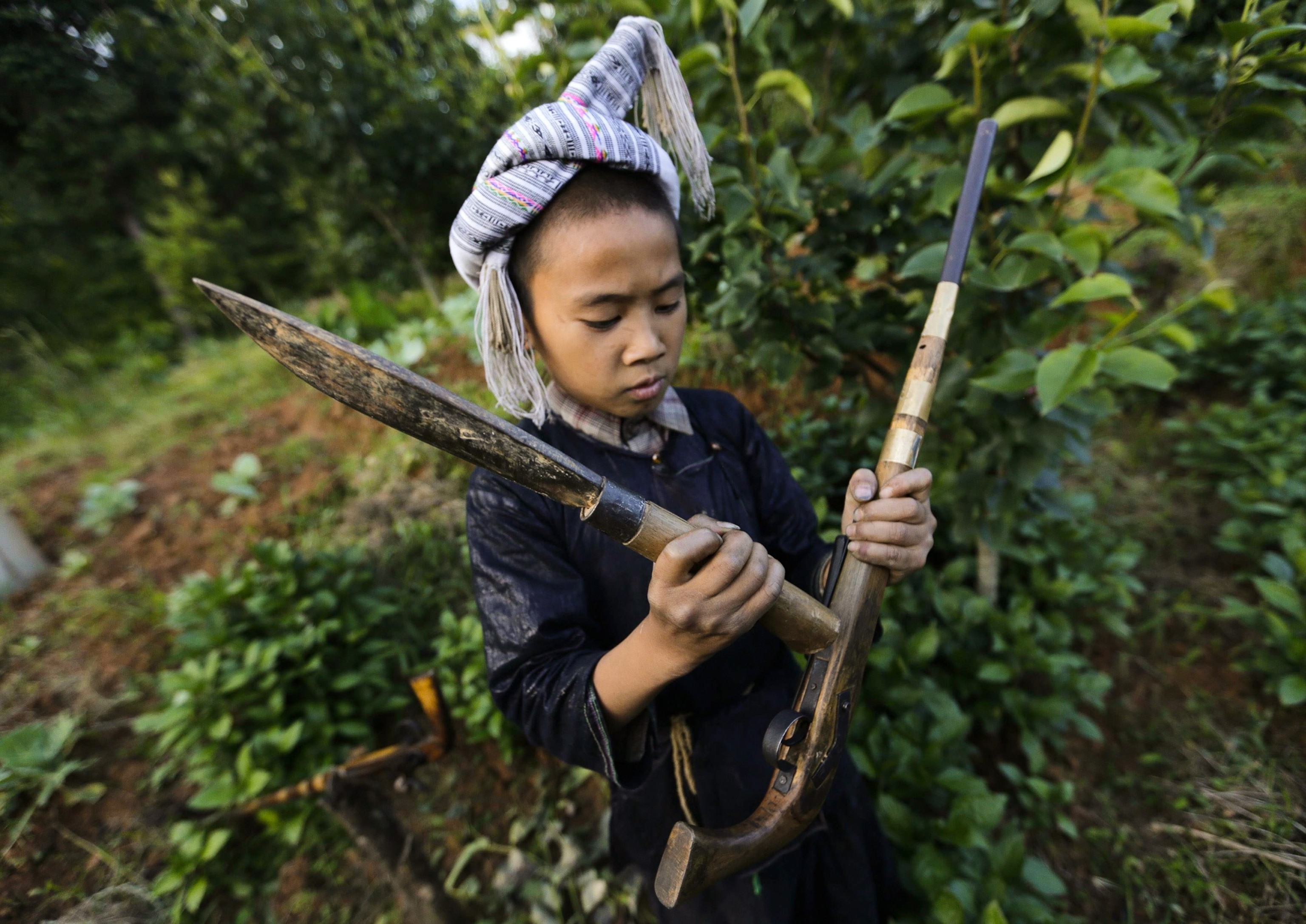
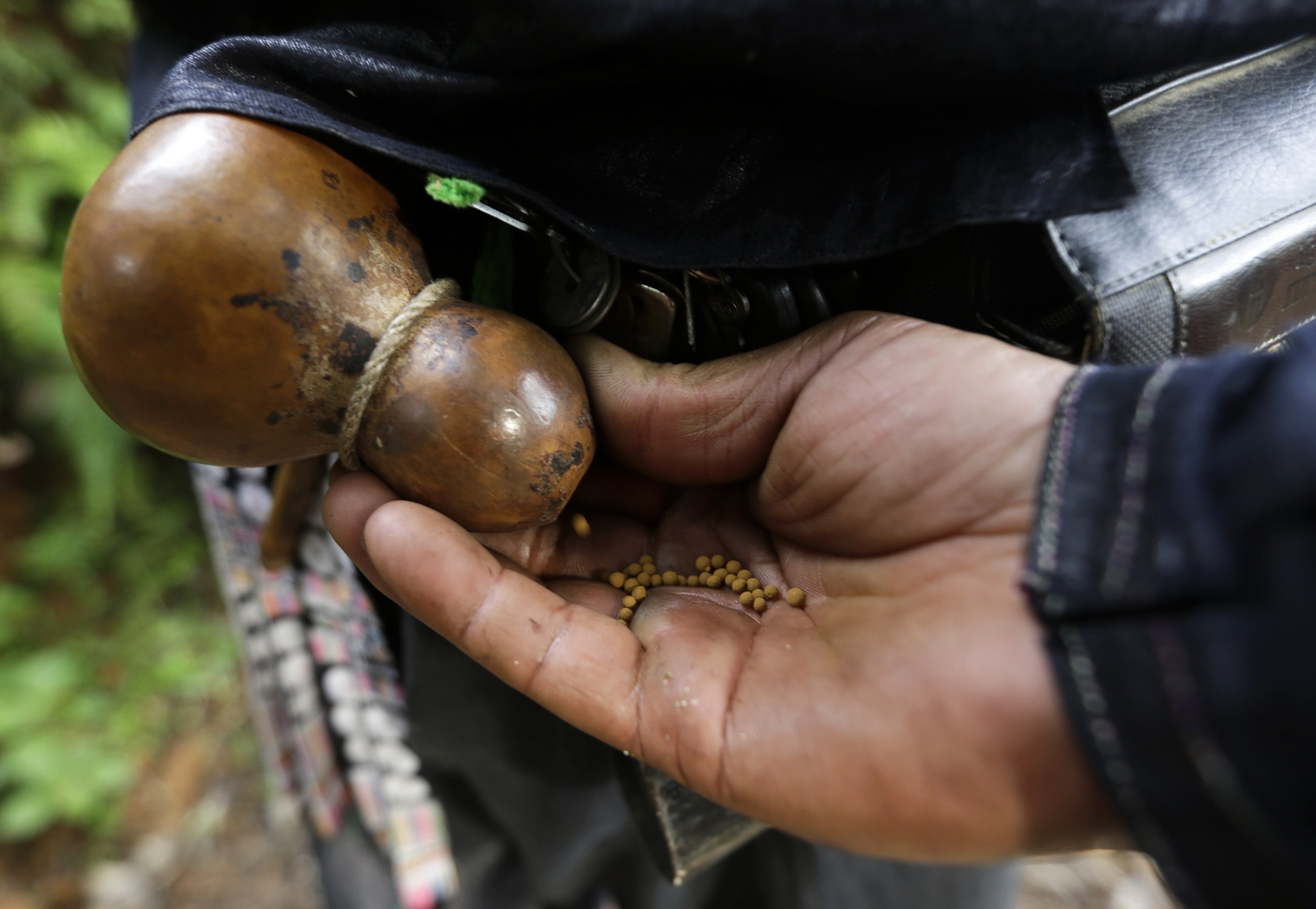
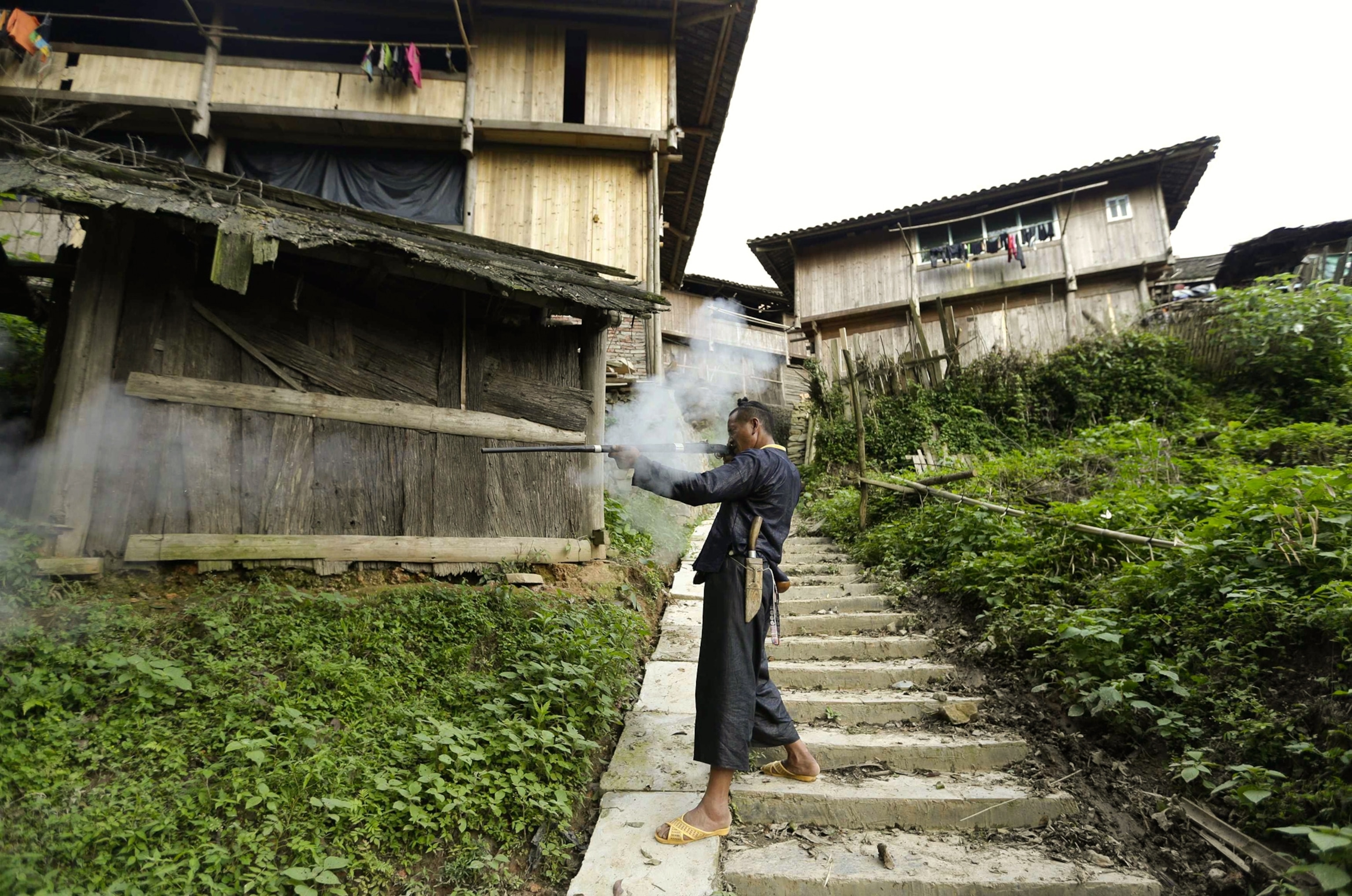

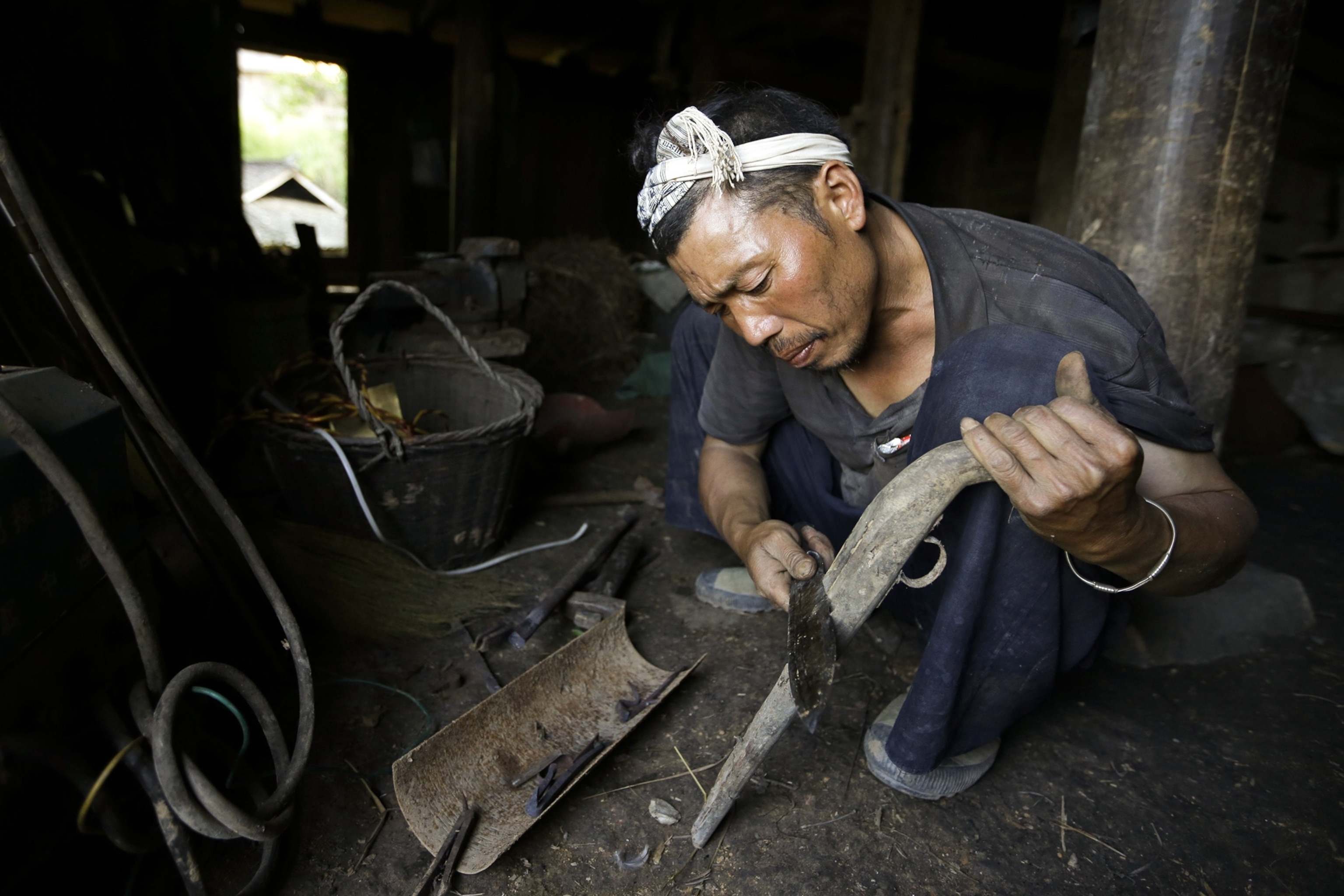
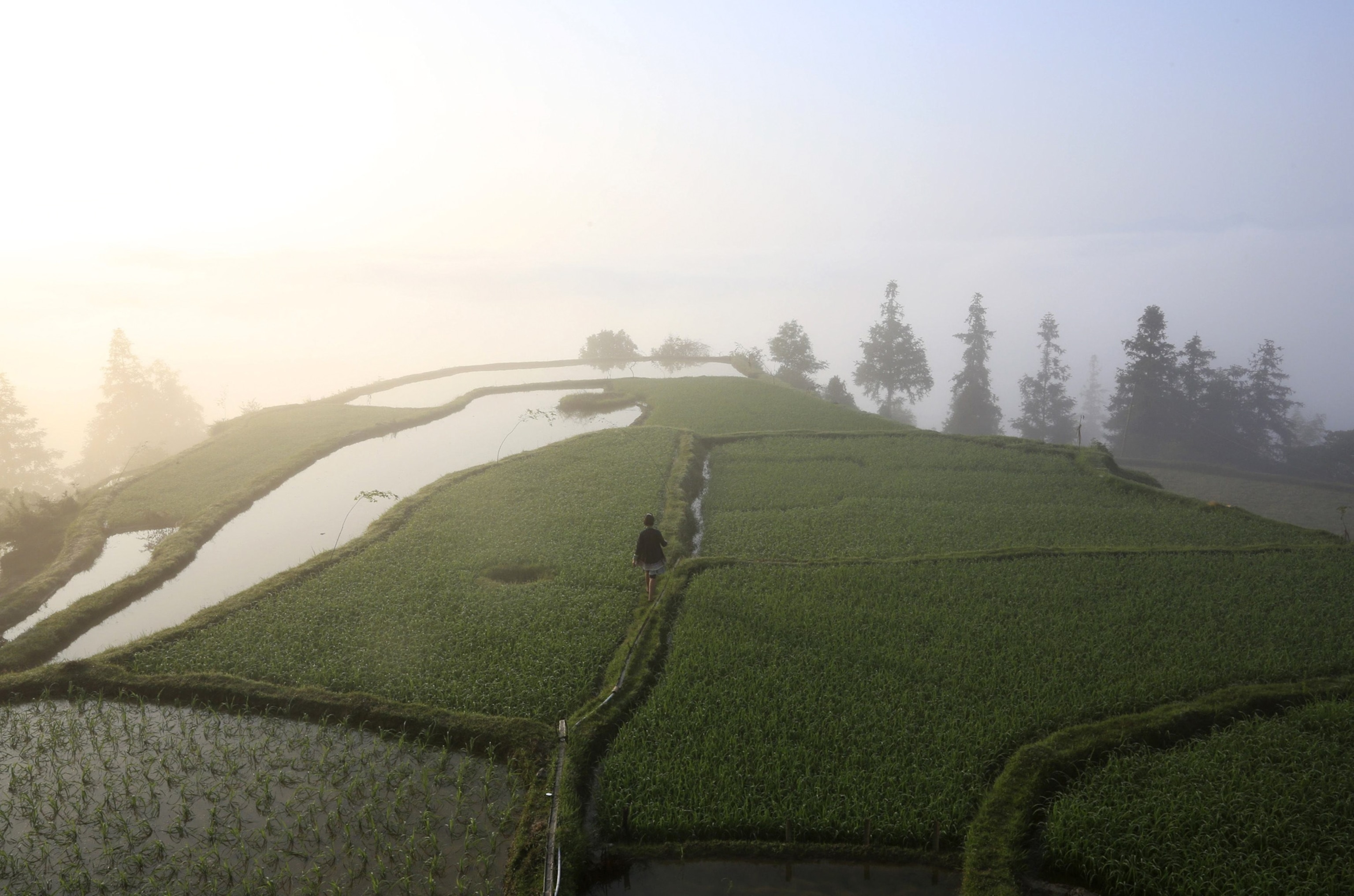
Far from the hustle and bustle of China's exploding cities, residents of a village in Guizhou Province have been setting off explosions of their own.
The village, Biasha (sometimes spelled Basha), is home to a population with a long history of gun ownership. Unlike in most of China, though, the men of Biasha still use the weapons. Though firearms have their roots in China—gunpowder was invented there—guns are tightly regulated and gun ownership by citizens is prohibited.
But exceptions exist, and Biasha is one of them. The men of Biasha openly make, carry, and use guns, not to sustain themselves by hunting, but to sustain a cultural tradition. Today, Biasha's gunmen—marketed as China's last gunslingers—draw tourists to the town for shows that include dancing, traditional music, and hair cutting as well as the main event: displays of marksmanship.
The population of Biasha is ethnically Miao, one of 55 minority groups recognized in China. Minority groups have long been granted exceptions to laws that govern the rest of China, says Rutgers anthropologist Louisa Schein. While the gun exception may be "very particular" to this group, exemptions themselves are "not uncommon," she says, pointing to minority exemptions to China's restrictive birth policies.
Bee Vang, a Hmong American student of Miao descent, went to China on a "roots-seeking" trip and said his visit to Biasha was influenced by the strong emphasis on masculine culture. Where other villages focused on women's costumes, he says, in Biasha, "it was all about the men and the boys and the guns."
The guns are a powerful draw for Chinese citizens as well. Vang notes that when he was in Biasha, a TV crew was filming urbanites who had been brought to the countryside for a Survivor-style competition, capitalizing on the perception of the rural gunmen as tougher people from a bygone era.
As one of the most visited towns in the area, Biasha is an example of "culture fever," a Chinese term for the lure of rural ethnic life, says Schein. "This is part of something that has been developing since the 1980s," she says, thanks to a popular interest in diverse traditions coupled with support from the government and international NGOs. Guizhou is one of China's poorest provinces, and tourism can provide both an economic incentive for rural communities to preserve their traditions and the financial means to do so.
—Katia Andreassi
China's Last Gunslingers
China prohibits gun ownership by most citizens, but in the village of Baisha, guns are used openly.